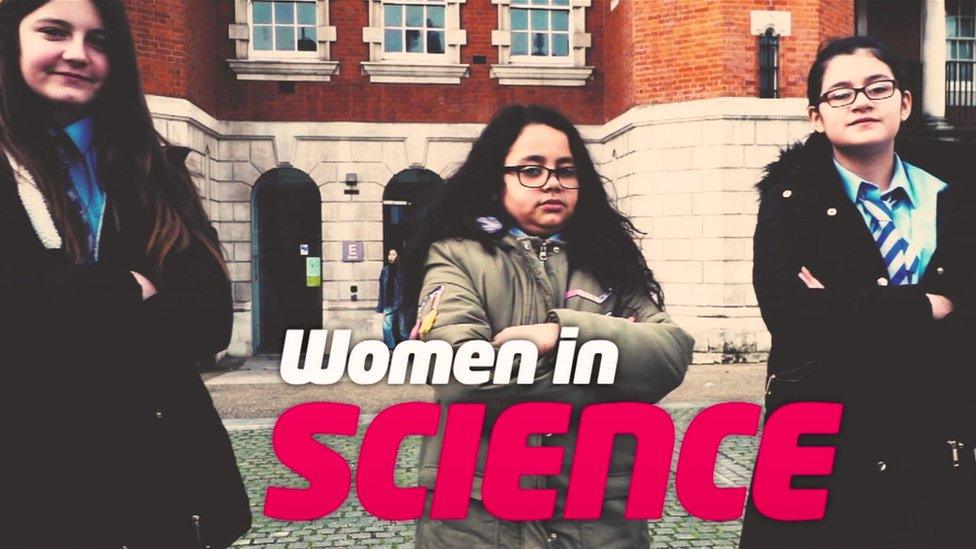Women in Science Day: Meet these amazing scientists making a difference
- Published
- comments

Meet Laura, Samantha and Soraya: Newsround's young scientists on a mission to meet your amazing women in science
You probably study science and maths at school, as well as maybe even technology or engineering.
But have you ever considered doing it as a job?
These subjects are really important because they affect every aspect of our lives and the world around us.
But experts say not enough girls are choosing a career based around STEM subject - that's science, technology, engineering and maths.
The 11 February is Women in Science Day, to celebrate women in science, and encourage girls to concentrate on scientific subjects in schools.
Newsround set three girls - Laura, Samantha and Soraya - a mission: to meet four female scientists and find out about their special work.
How do scientists monitor the brain?
A scientist shows three girls how we can monitor the brain at different times.
You probably learn physics at school - but did you know it can be used to monitor our brains?
Dr Gemma Bale from University College London has a special device that can work out how hard our brains are working, by measuring the oxygen and blood flow.
So Dr Bale gave Laura, Samantha and Soraya some tricky maths problems to put it to the test.
How do scientists tackle air pollution?
Women and girls in science: How do scientists tackle air pollution?
What about a future job as an award-winning scientist?
Emily Xu was named Young Scientist at the Big Bang Fair in 2018 , she is now hard at work, studying Chemical Engineering at Imperial College London.
She says her Chemistry teacher inspired her to pursue a career in science.
She's been showing Laura, Samantha and Soraya how a carbon capture plant tries to reduce the level of pollution in the air.
But will they know how to deal with an emergency drill?
No more injections for vaccines?
Women and girls in science: No more injections for vaccines?
How can you take bacteria and algae to make something useful?
Dr Brenda Parker from University College London uses them to help with vaccines, fuel, and reducing pollution.
Could they even be used to help get rid off the dreaded injections by making edible vaccines instead?
Time to get those white coats and goggles on and head into the lab to find out.
Can voice devices be more caring?
Women and girls in science: Can voice devices be more caring?
Do you ever use Alexa or Siri? Would it be nice if they could tell how you were feeling?
Dr Charlotte Webb from the Creative Computing Institute at UAL hopes to make voice devices, or personal intelligence assistants, more caring and able to help us when we're feeling down.
Laura, Samantha and Soraya have been trying out 'Bud' - so what do they think?
- Published11 February 2019
- Published25 March 2021
- Published29 January 2019
- Published21 January 2019
- Published28 June 2018
- Published12 February 2018
- Published14 July 2015
